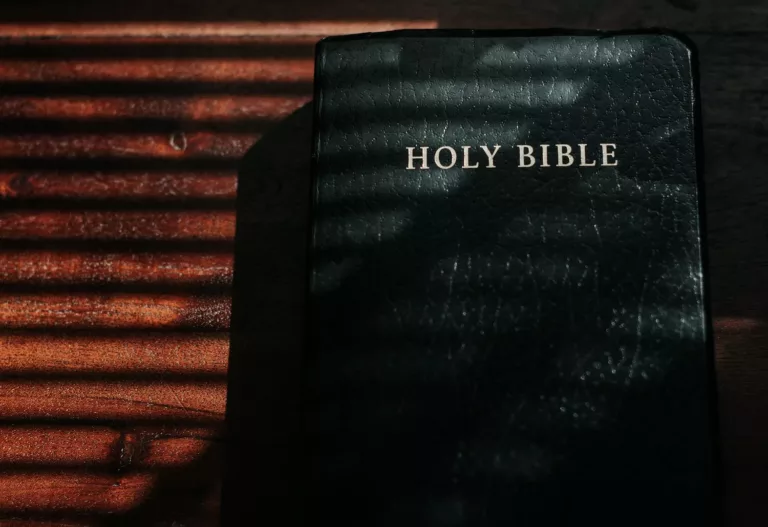Reading the book of Revelation helps us understand God’s message of salvation, but it can leave believers with a lot of questions about the end times, when Jesus will return. This is part two of a three-part series to help you understand the end times. This week, we look at what the Bible says about the end times. Last week, we looked at the big story of the Bible. Next week, we’ll look at what Jesus says about the end times.
It is nearly impossible to read what the Bible says about the end times without imposing many of our own preconceptions – ideas shaped more by popular culture than by Scripture itself. This is understandable! Post-apocalyptic books and movies are everywhere. Their depictions of the end of the world are captivating, accessible and entertaining. Most of us would rather go to the movies or read a paperback than comb through the Bible.
So why bother going to the Bible? Because the Bible is God’s Word. It is God’s revelation of God’s self, of God’s purposes for us, and of God’s plans for our world. There is a great benefit for believers in going back, reading the Bible with fresh, unbiased eyes, and rediscovering what God himself says about the end of time.
What Doesn’t the Bible Say?
But first, what doesn’t the Bible say?
The Bible does not say how the world will end. Popular culture imagines asteroid strikes, alien attacks, nuclear holocausts, environmental catastrophes and yes, zombie plagues. The Bible does not attribute the end of the world to a single cause, natural or man-made.
The Bible does not say when the world will end. Contrary to the predictions of the Mayan calendar and Harold Camping (and others!), human beings have no way of calculating or even accurately estimating when history will run its course.
The Bible’s simple response to when and how the world will end is that the end times are, in fact, securely in God’s hands, and will unfold according to God’s purposes.
So what does the Bible say?
The Old Testament and the End Times
The Old Testament prophets use two terms to capture the Hebrew concept of the end of time: “The Day of the LORD” (see Isa. 2:12, Joel 2:11, Amos 5:18); and “The Year of the LORD’s Favor” (see Isa. 61:2).
The ancient Israelites understood this to be the moment when the LORD God shows up in person to redeem his people and restore creation. The faithful expected this to be a positive event. But a quick glance at the prophets’ words reveals the day to be far more complex. Amos writes, “Woe to you who long for the day of the LORD! Why do you long for the day of the LORD? That day will be darkness, not light”(Amos 5:18 NIV).
The prophet rightly warns that even the most religiously observant fall short of God’s standard for righteousness. Reconciliation with God is also reckoning with God. What is that reckoning like when, as the psalmist writes, “There is no one who does good, not even one”(Ps. 53:3 NIV)?
Isaiah provides a contrasting perspective: “The LORD has anointed me to proclaim good news to the poor. He has sent me to bind up the brokenhearted, to proclaim freedom for the captives and release from darkness for the prisoners, to proclaim the year of the LORD’s favor and the day of vengeance of our God, to comfort all who mourn” (Isa. 61:1-2 NIV).
In other words, when the living God shows up in person, he will execute judgment on evildoers. But he will also restore order, justice and goodness to creation. This is a day to prepare for by preparing your heart to meet God. It is also a day to look forward to, especially if you have struggled under the weight of poverty, disability, abuse or discrimination.
The New Testament and the End Times
What no one in ancient Israel expected was for the “day of the LORD” to come not at the end of history, but in its center. Jesus’ first sermon was a reading of Isaiah 61, followed by, “Today this scripture is fulfilled in your hearing.” (Luke 4:21 NIV)
Jesus’ earthly ministry was a literal enactment of the promises contained in that prophecy. Most surprising was Jesus reckoning, on our behalf, with God the Father. At the cross, Jesus bore God’s judgment on human sin. This means that for anyone who believes in Jesus, there is no more judgment in “judgment day”.
The New Testament presents adjustments to the prophets’ visions of the end of time. The apostles emphasize reunion with God rather than reckoning. In 1 Thess. 4:14-18, Paul says little about the final judgment. Instead, he describes being literally swept up into Jesus’ arms at his return. He concludes, “Therefore encourage one another with these words.”
Revelation and the End Times
There can be no doubt that Revelation, the most obvious biblical treatment of the end times, portrays large-scale upheaval and destruction. When we read it, however, we must keep two things in mind.
First, John, the narrator, describes the kinds of events that have always been happening somewhere at any given time in history. John wrote to a church facing state-sanctioned persecution, at the same time that wars, famines and plagues were breaking out all over the empire.
Does this sound familiar to you? As I write, war rages between Russia and Ukraine. Thousands lie dead under rubble following an earthquake in Syria and Turkey. Biologists estimate that a third of the plant and animal species in the U.S. alone are at risk of extinction. Are the end times upon us? If so, they have been underway for at least two thousand years.
Second, Revelation begins with an ascended Christ who presides in power over all of history and moves it toward a conclusion whose beauty we can barely imagine. It concludes with him ushering his own into that glorious future. As such, even the devastation that unfolds on earth must, like all things, serve Christ’s saving purposes.
We Are in Christ’s Hands
The end times – whenever and however they unfold – are in Christ’s capable hands. Guess what? You and I are, too. This means we can trust Christ to carry us through the final days of this “old order” just as gently and generously as he will carry you through all the days of your life. As the old hymn, “Day of Judgment, Day of Wonders” concludes,
But to those who have confessed,
loved and served the Lord below,
he will say, “Come near, ye blessed,
see the kingdom I bestow;
you forever shall my love and glory know.”
John Newton, 1774
About the Author

Ben Van Arragon
Ben Van Arragon is a preacher and writer based in Grand Rapids, Michigan. He preaches and teaches the Bible in church, online, and anywhere else he has the opportunity.
- Ben Van Arragon#molongui-disabled-link
- Ben Van Arragon#molongui-disabled-link
- Ben Van Arragon#molongui-disabled-link
- Ben Van Arragon#molongui-disabled-link

